Despite being over a hundred years old, Mrs. Ngo Thi Lang, residing in Hoi An City, Quang Nam Province, remains sharp and healthy. Every day, she wakes up at 5am to exercise and handles her personal activities independently.
However, her sharpness cannot hide the sorrow in her eyes. For nearly 60 years, Lang has never found peace, always thinking of her son who went to fight and never returned. This pain is etched deeply in the lines of her face.
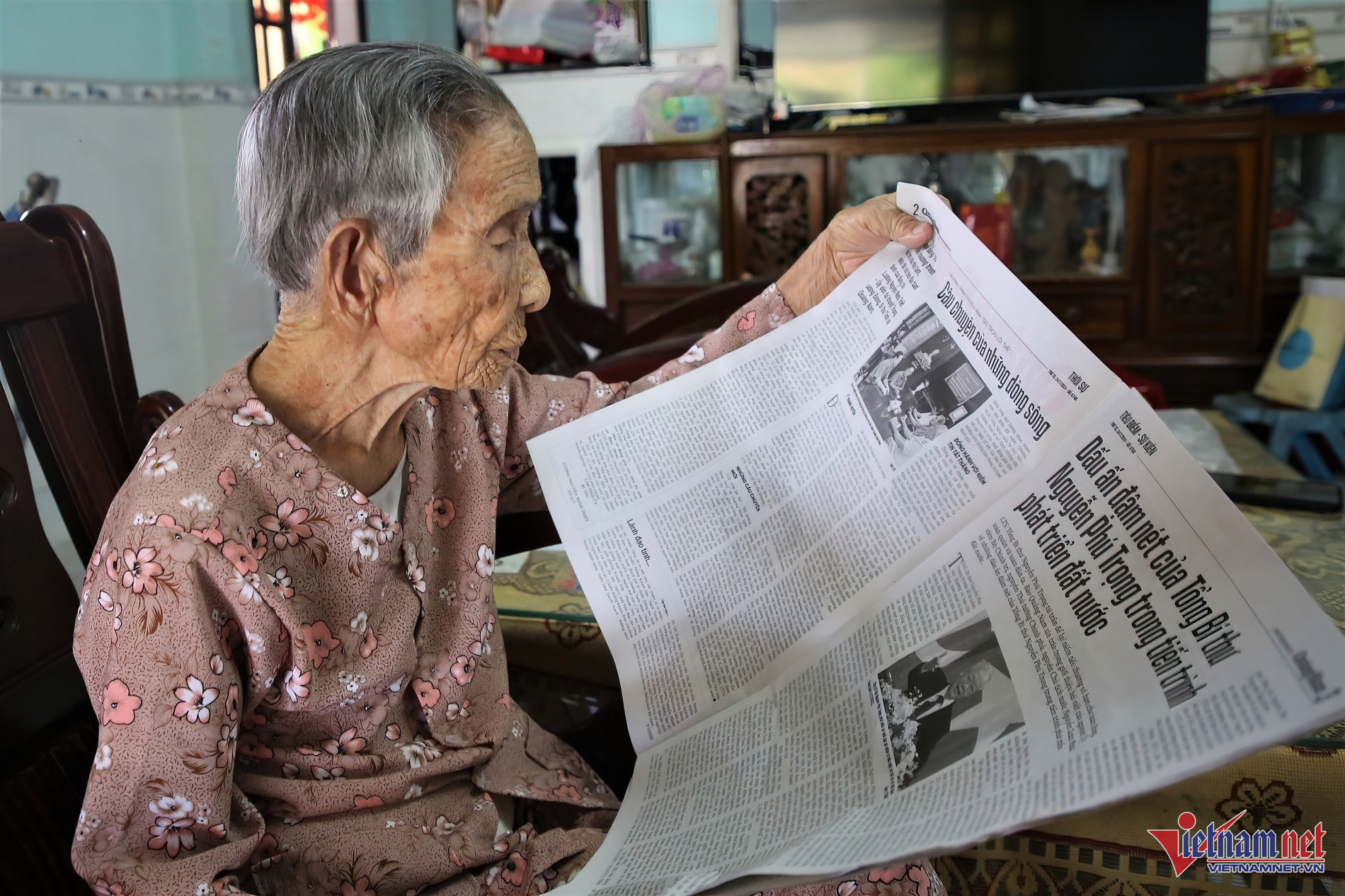
Lang is the relative of two martyrs and one wounded soldier. Her husband and son both sacrificed their lives in the wars against the French and Americans.
Lang’s husband, martyr Huynh Kinh Nhi, born in 1918, was also from Hoi An. During the French occupation, the family relocated to Binh Duong Commune (Thang Binh District, Quang Nam Province) to facilitate their revolutionary activities.
In 1950, her husband sacrificed for the country, leaving Lang to raise their children alone while continuing her revolutionary work. Under the guise of trading, she frequently traveled between Thang Binh and Hoi An to deliver food and medicine to soldiers.
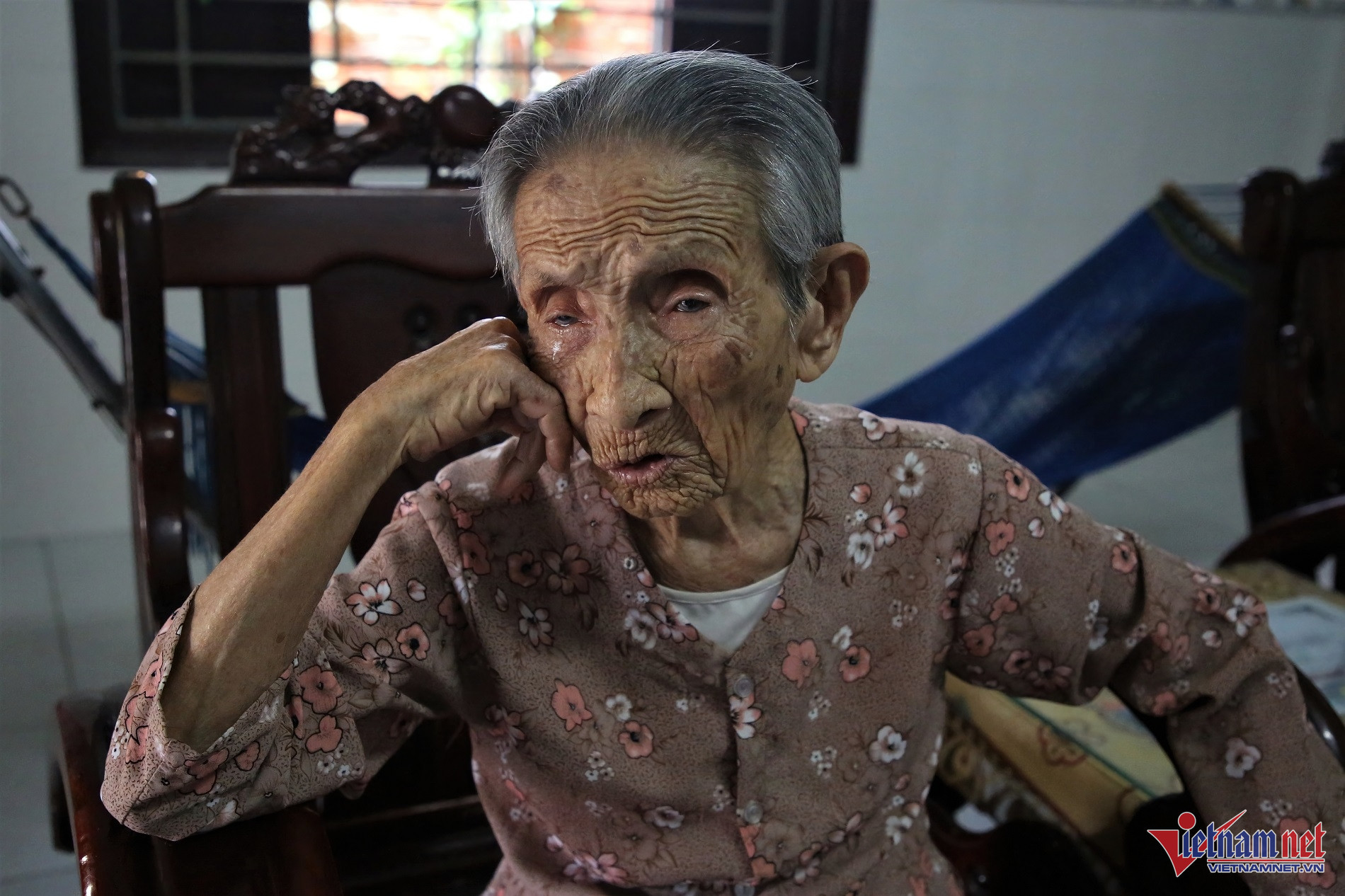
Lang’s house also became a shelter for revolutionary cadres. Beneath the shabby kitchen was a secret hideout for them. Despite being suspected and brutally beaten by the enemy multiple times, Lang never revealed any secrets.
Lang had three children: one daughter and two sons. In 1963, her eldest daughter went to Hanoi to study, her youngest son moved away for work, leaving only her middle son, Huynh Quang Tho, at home. At 17, he secretly volunteered to go to the battlefield during his summer vacation.
Once again, war claimed another of Lang’s sons. In 1965, 19-year-old soldier Huynh Quang Tho died in the white sands of Nui Thanh, Quang Nam.
"He snuck away to join the army. The war was fierce, and I was terrified of losing him, but keeping him meant losing our country, so I didn't stop him. Two years later, when I heard he had died, I was devastated. The chaos of war made it impossible to find him," Lang tearfully recounted.
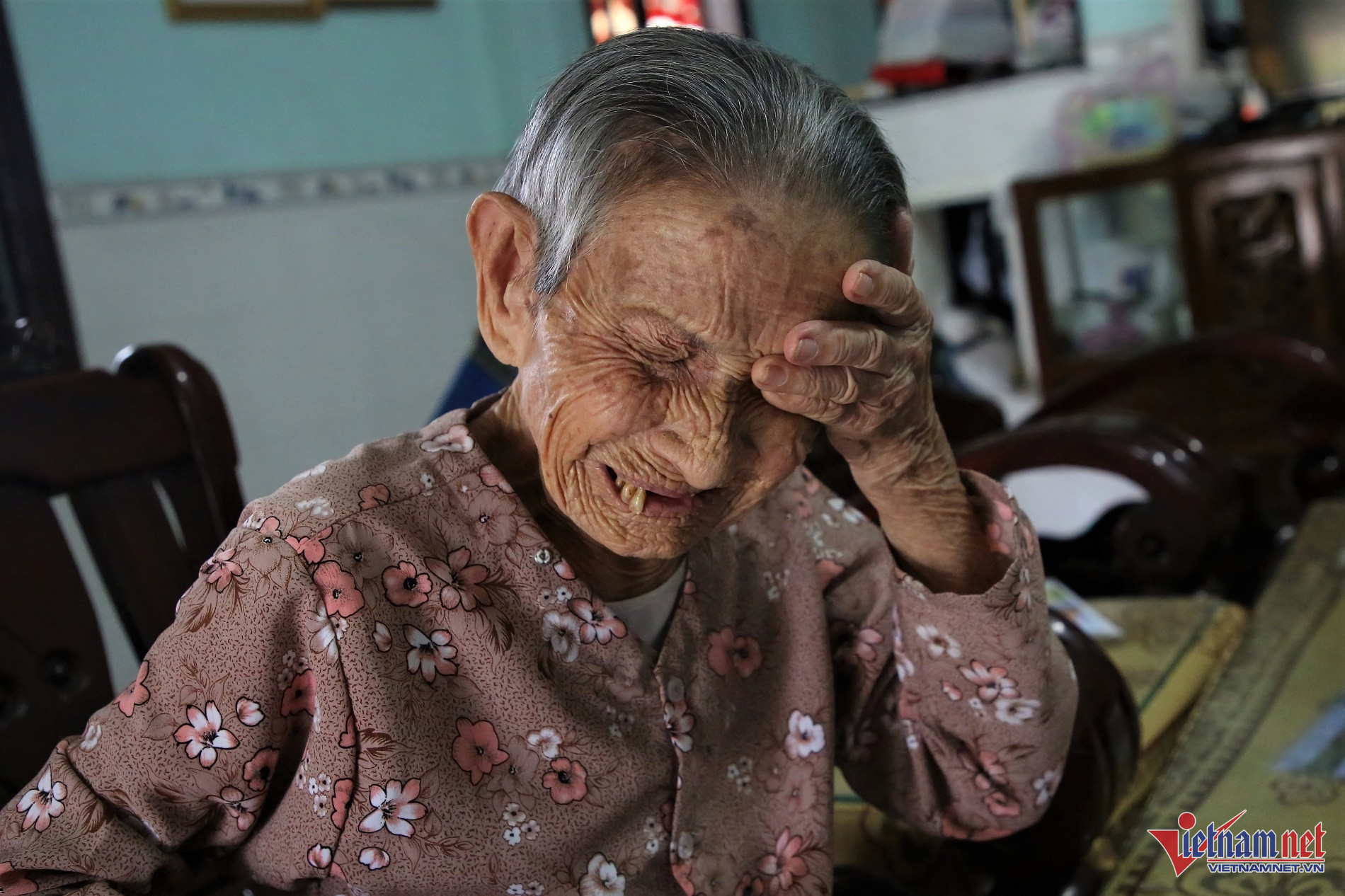
59 years of waiting
The year Tho died, her youngest son, Huynh Quang Thuyen, born in 1948, also volunteered to join the military. After serving in numerous battles across Central Vietnam, Thuyen was discharged in 1980. He returned home, took on several important positions in the revolutionary government, and is currently the Chairman of the Elderly Association in Cam Pho Ward, Hoi An City.
The family has been trying to locate Tho’s remains at the Tam Nghia Commune Martyrs Cemetery in Nui Thanh District, but the exact grave remains unidentified.
"For many years, we have tried to find his remains and grave, but it has been in vain. The cemetery has many unnamed graves, so we don’t know which one is his. Every time we visit, my mother walks among the gravestones, lighting incense and praying in vain, then breaks down in tears. Her last wish is to bring Tho’s remains back to Hoi An, so she can finally find peace," Thuyen said with emotion.
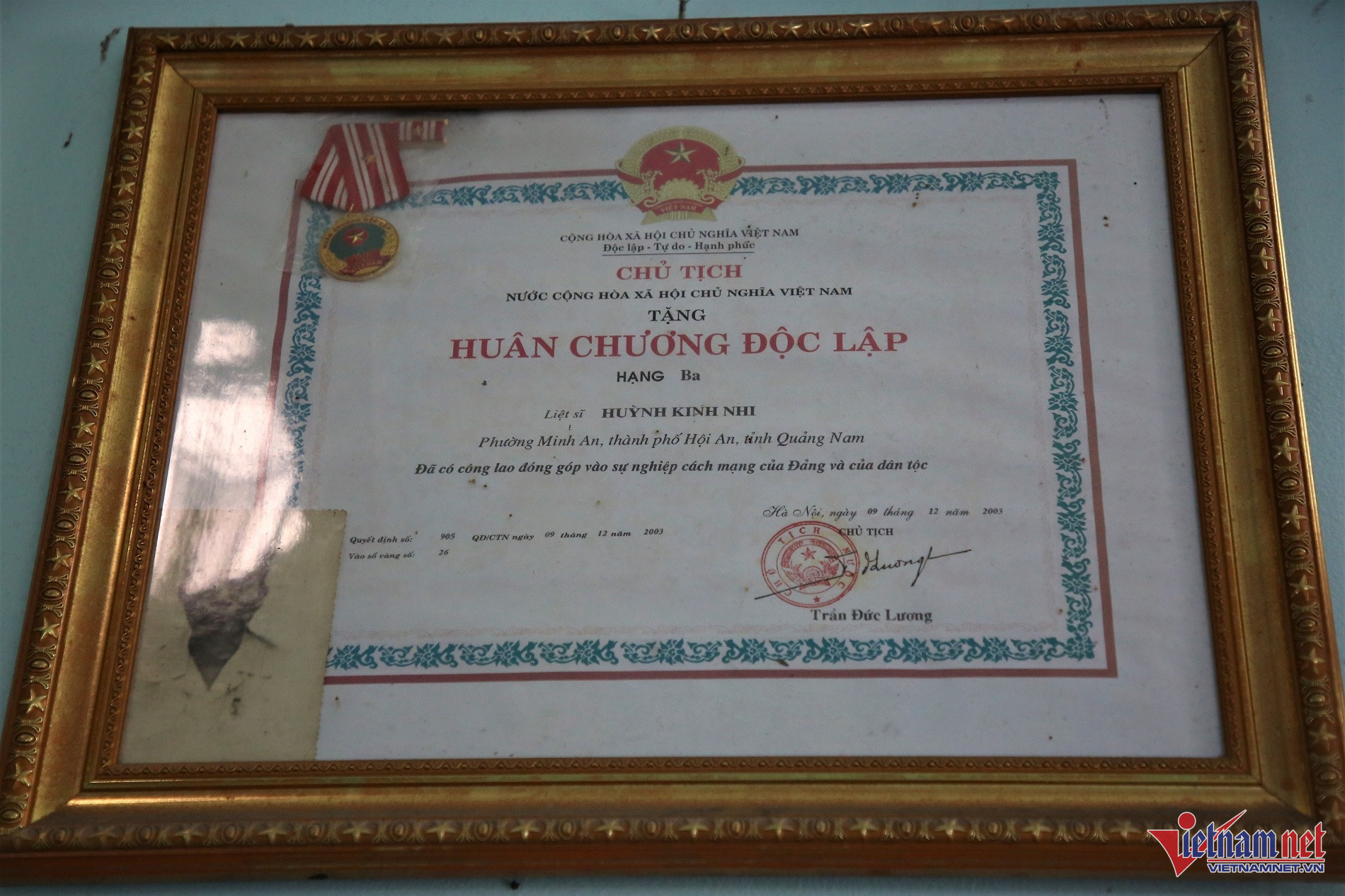 |
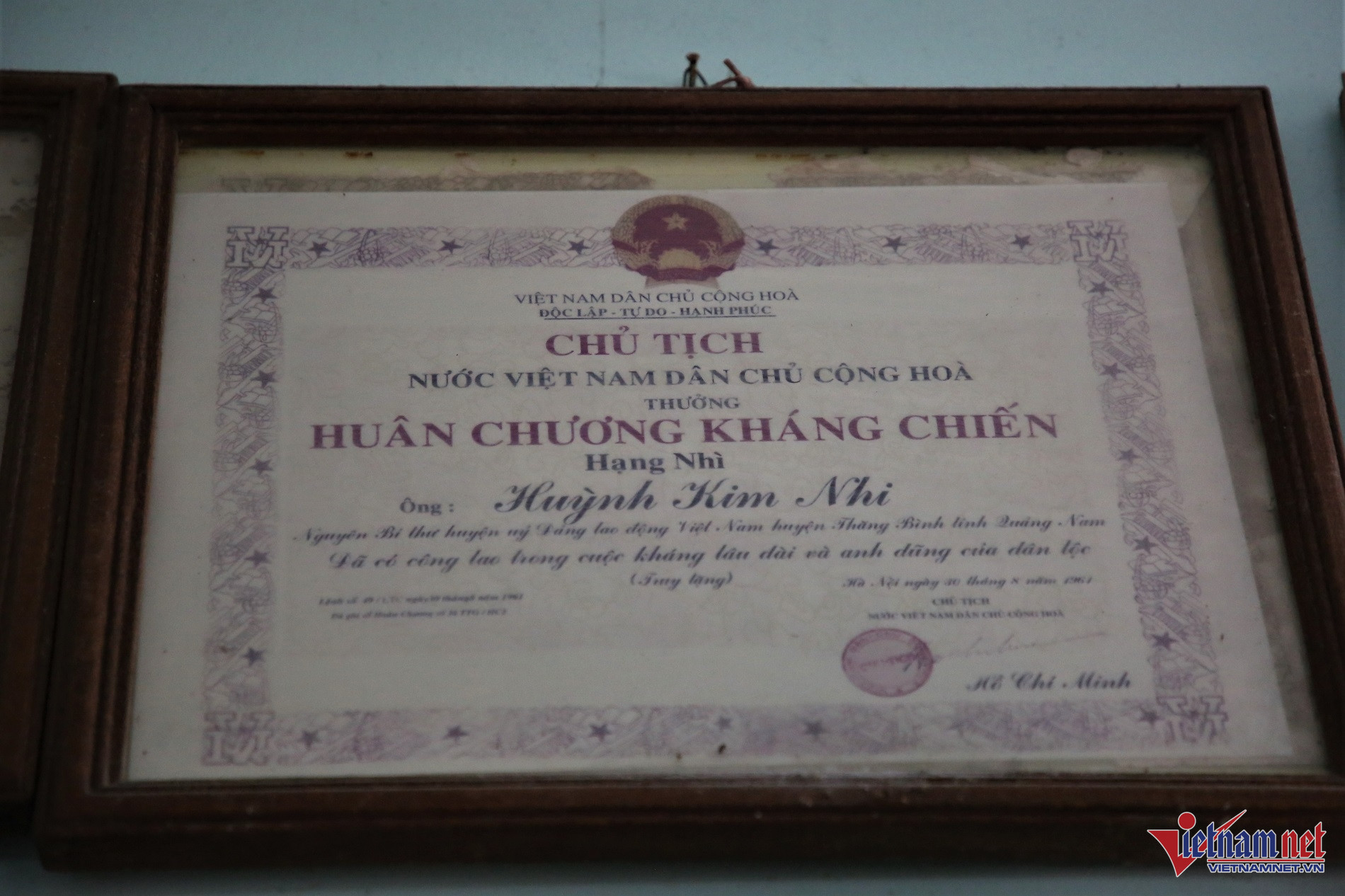 |
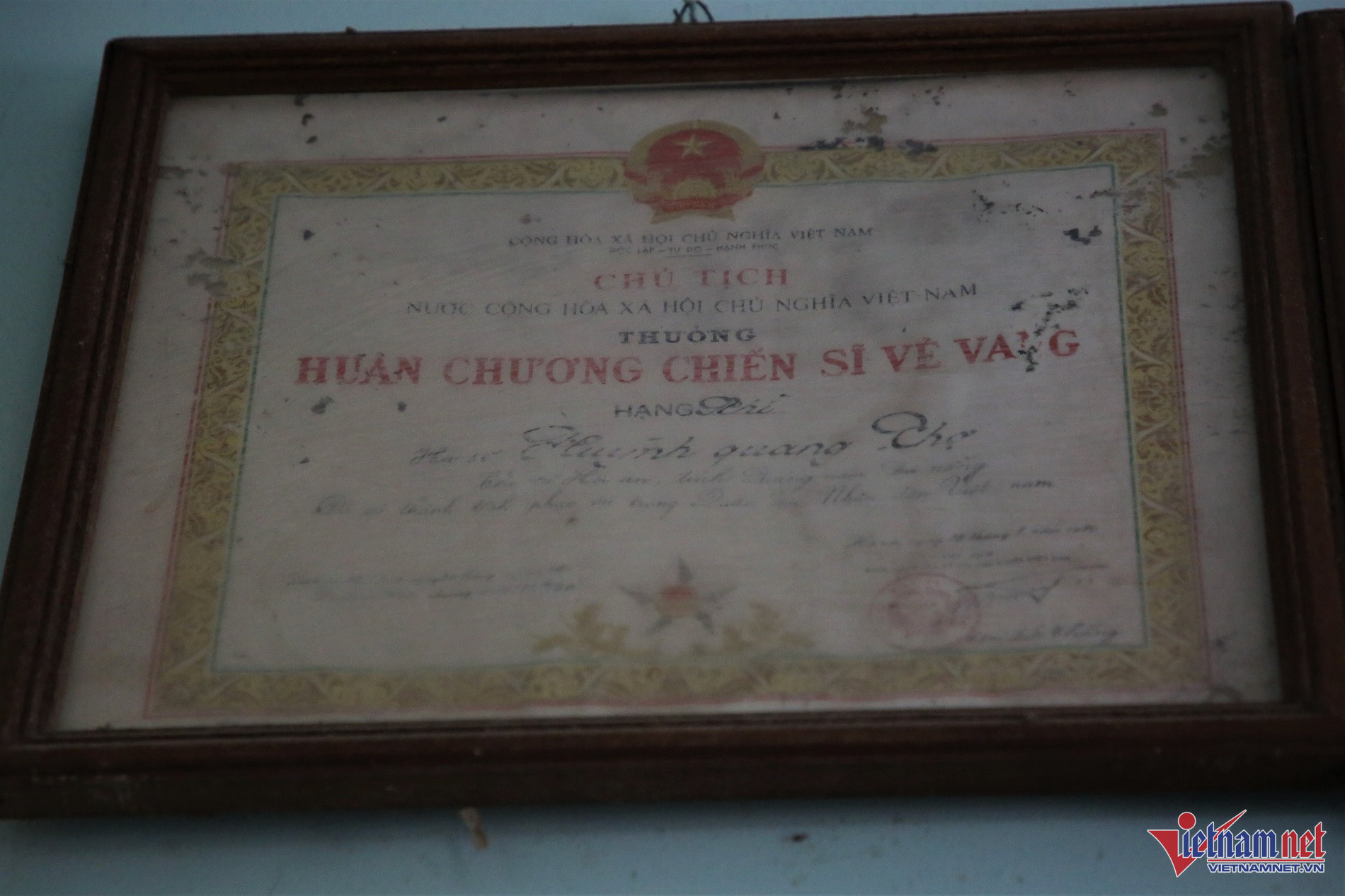 |
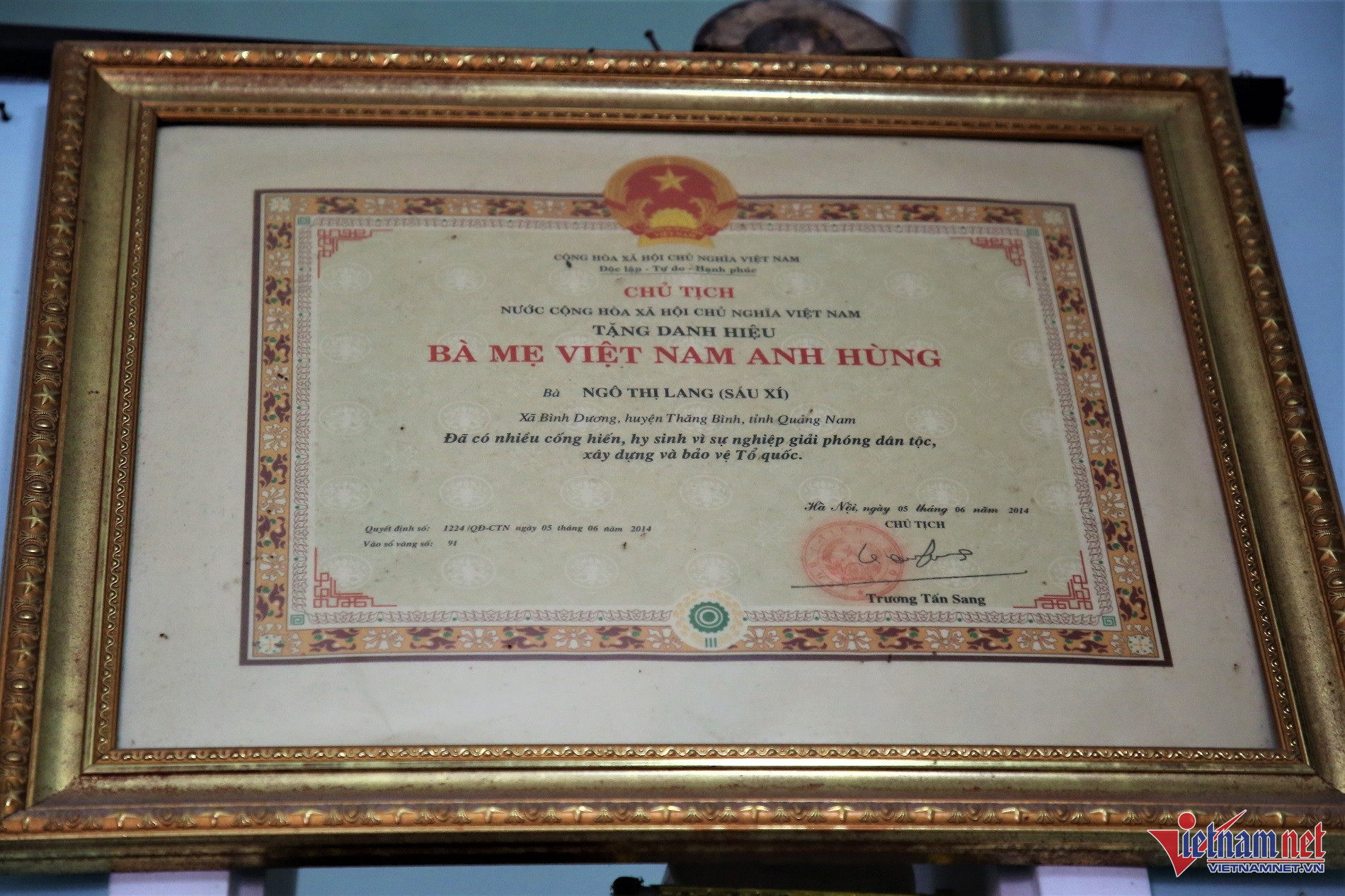 |
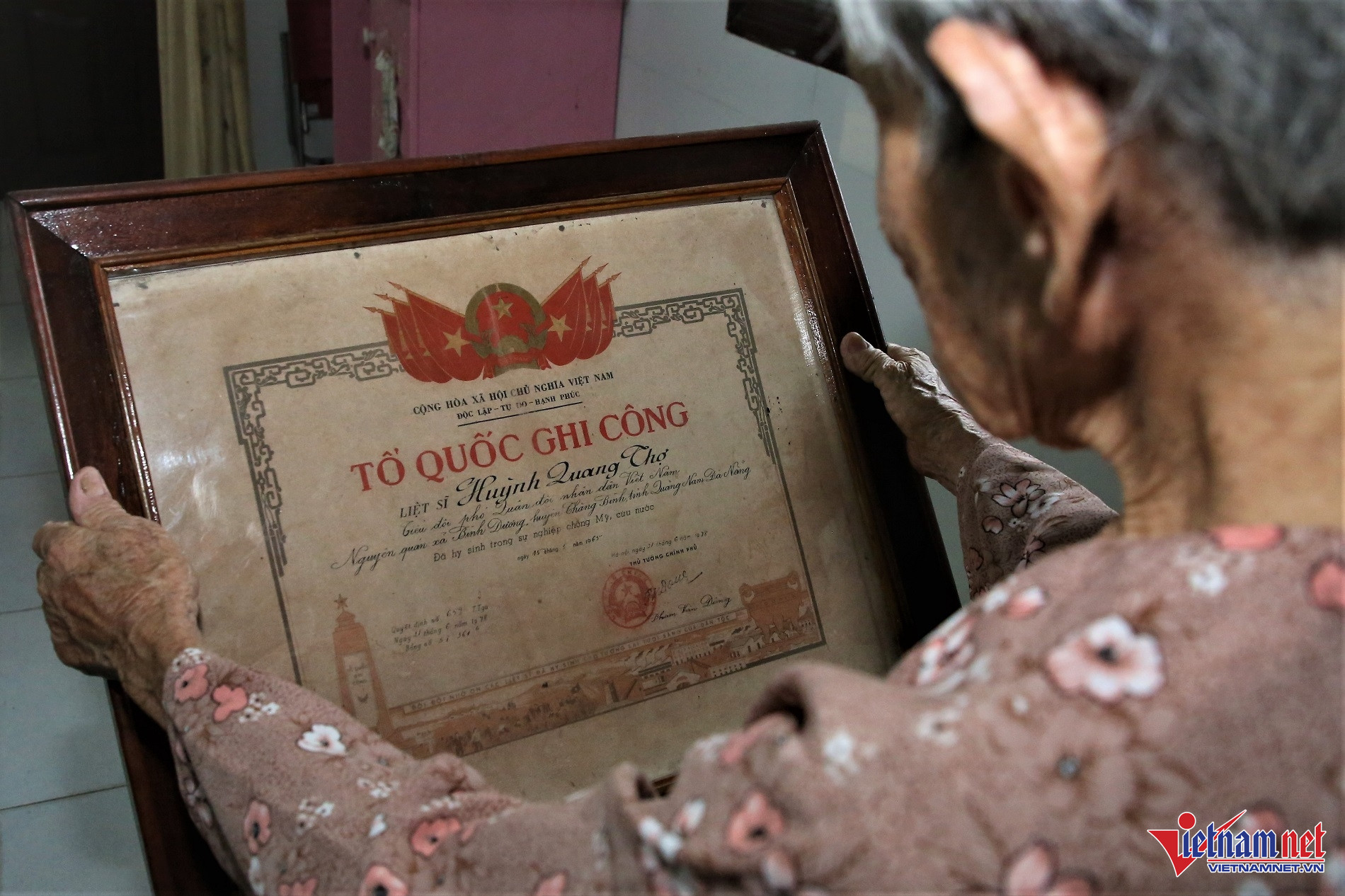
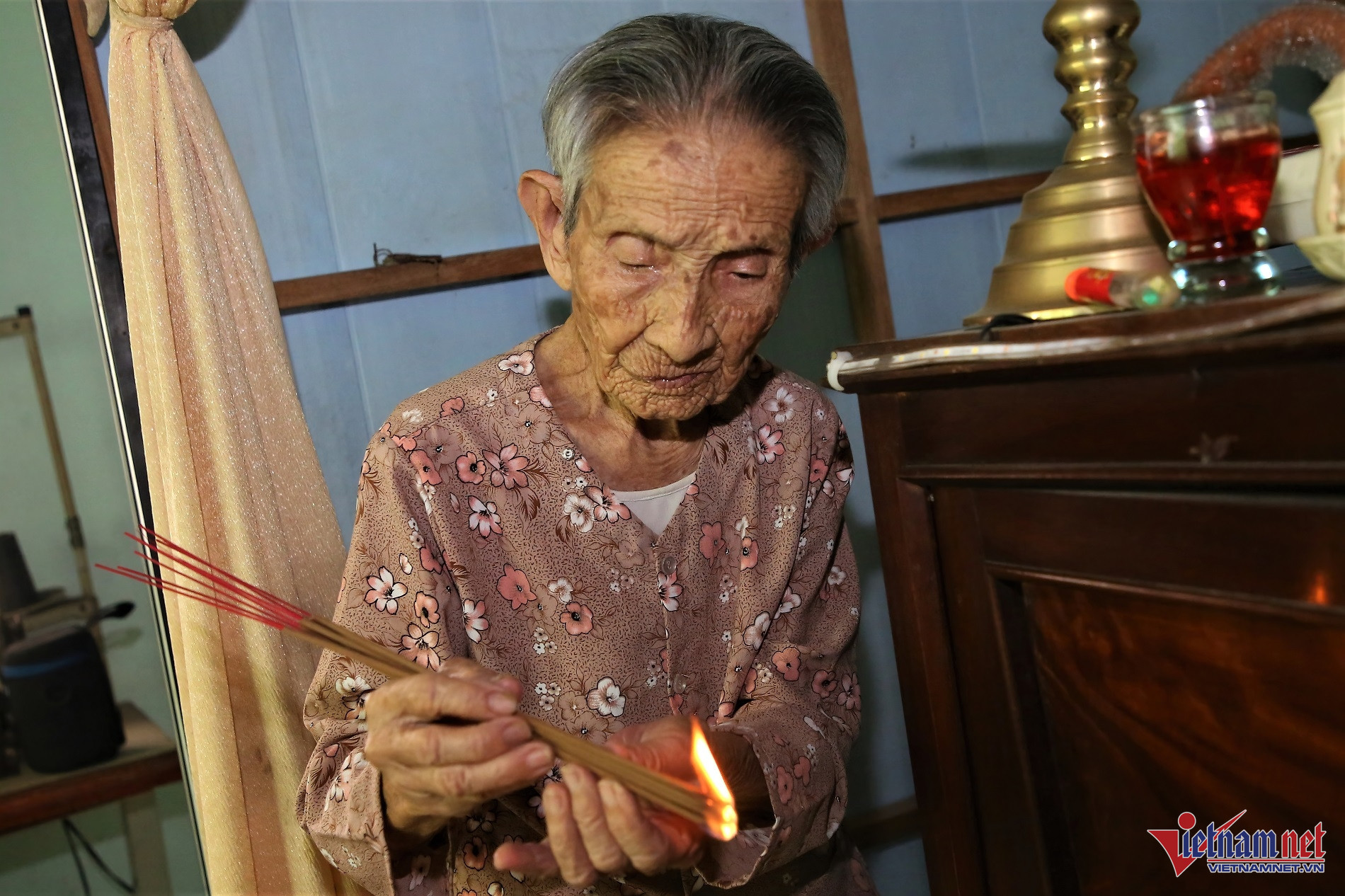
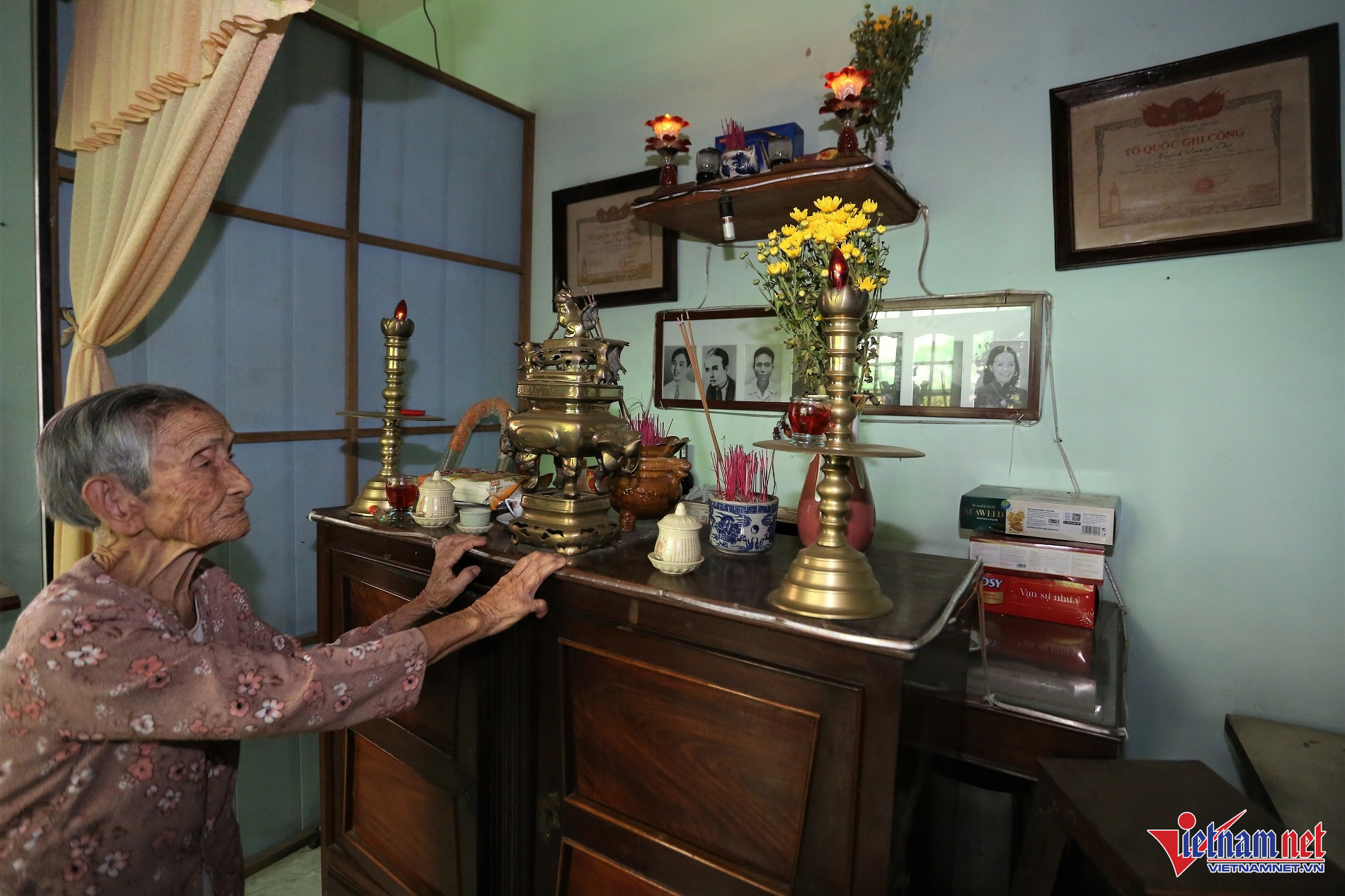
There is no joy greater than a family reunion after the war, but there is no sorrow greater than not having loved ones return on victory day. As she grows older, Lang’s longing for her son only intensifies, and she often revisits old memories.
Not knowing the exact date of her son’s death or having any mementos, the family holds an annual memorial on Martyrs and Invalids Day (July 27) to honor him.
To this day, Lang remains tormented, not knowing where her son’s remains are. However, she finds solace in living with her children and grandchildren, receiving care and support from the government and her community, which provides her the greatest spiritual comfort in her old age.
Ha Nam